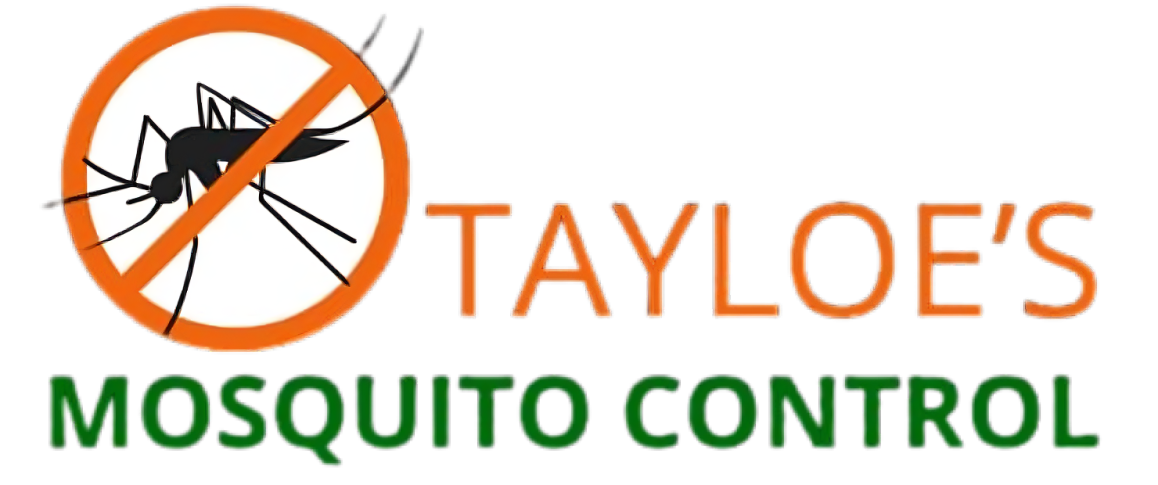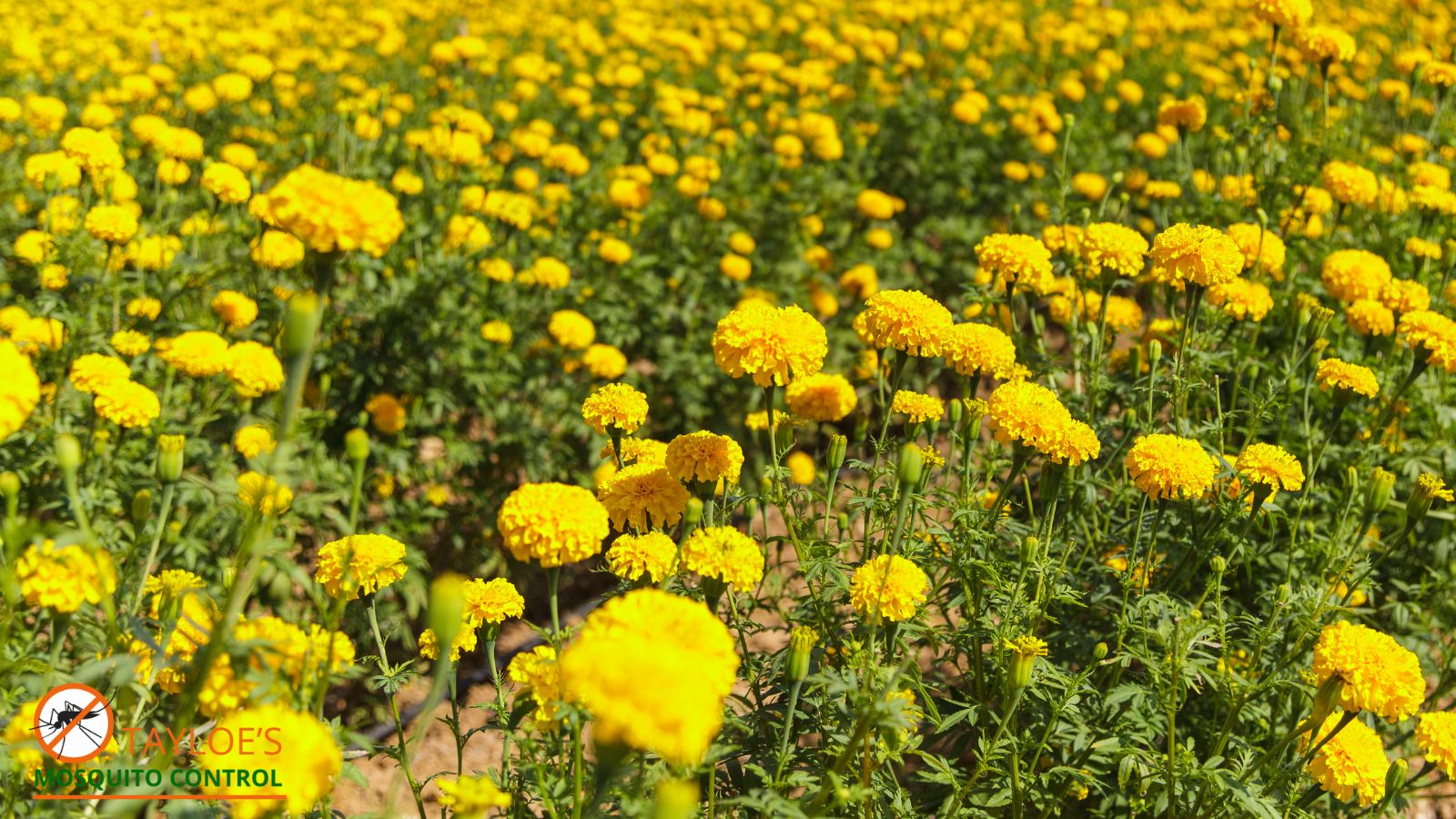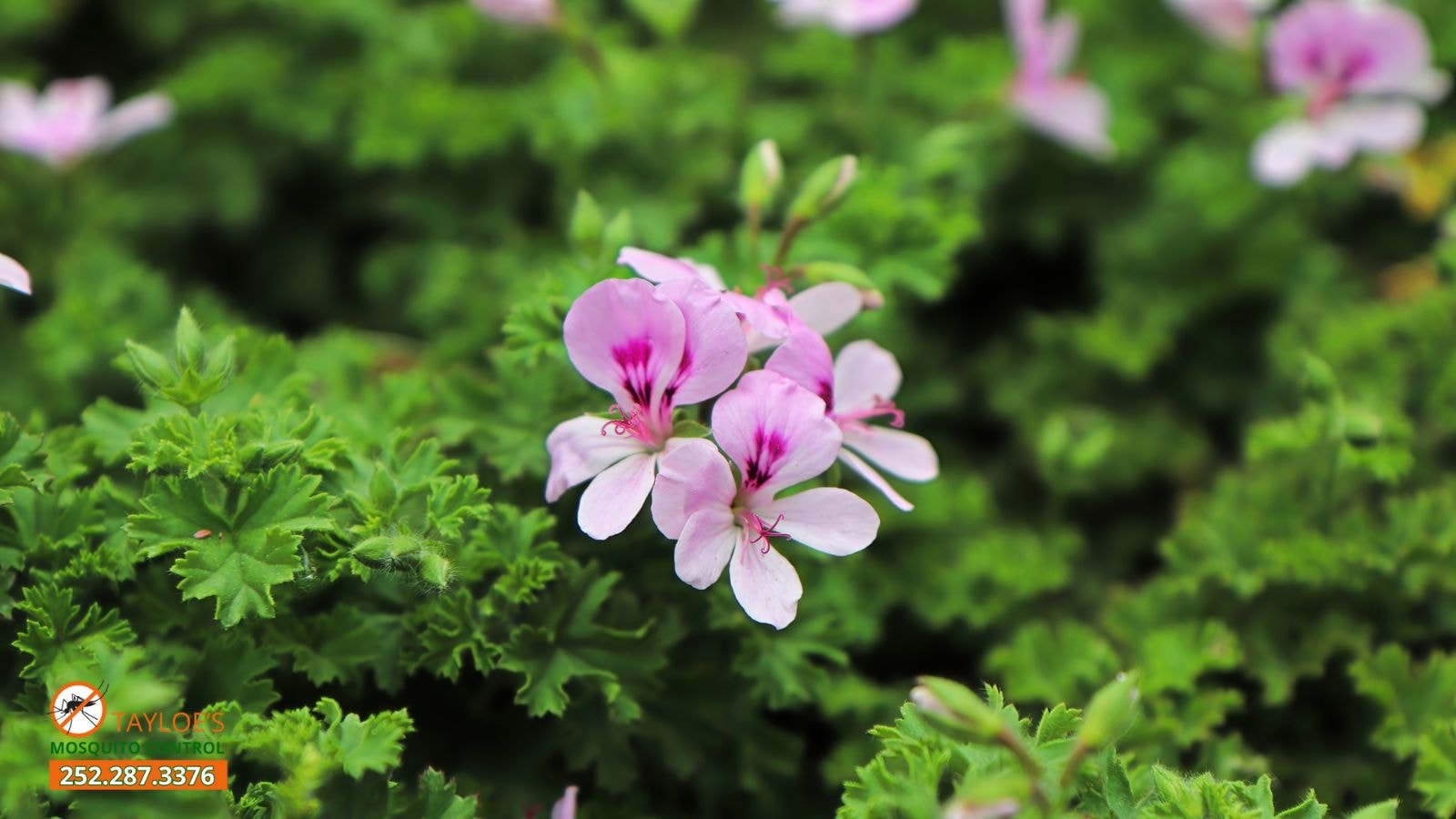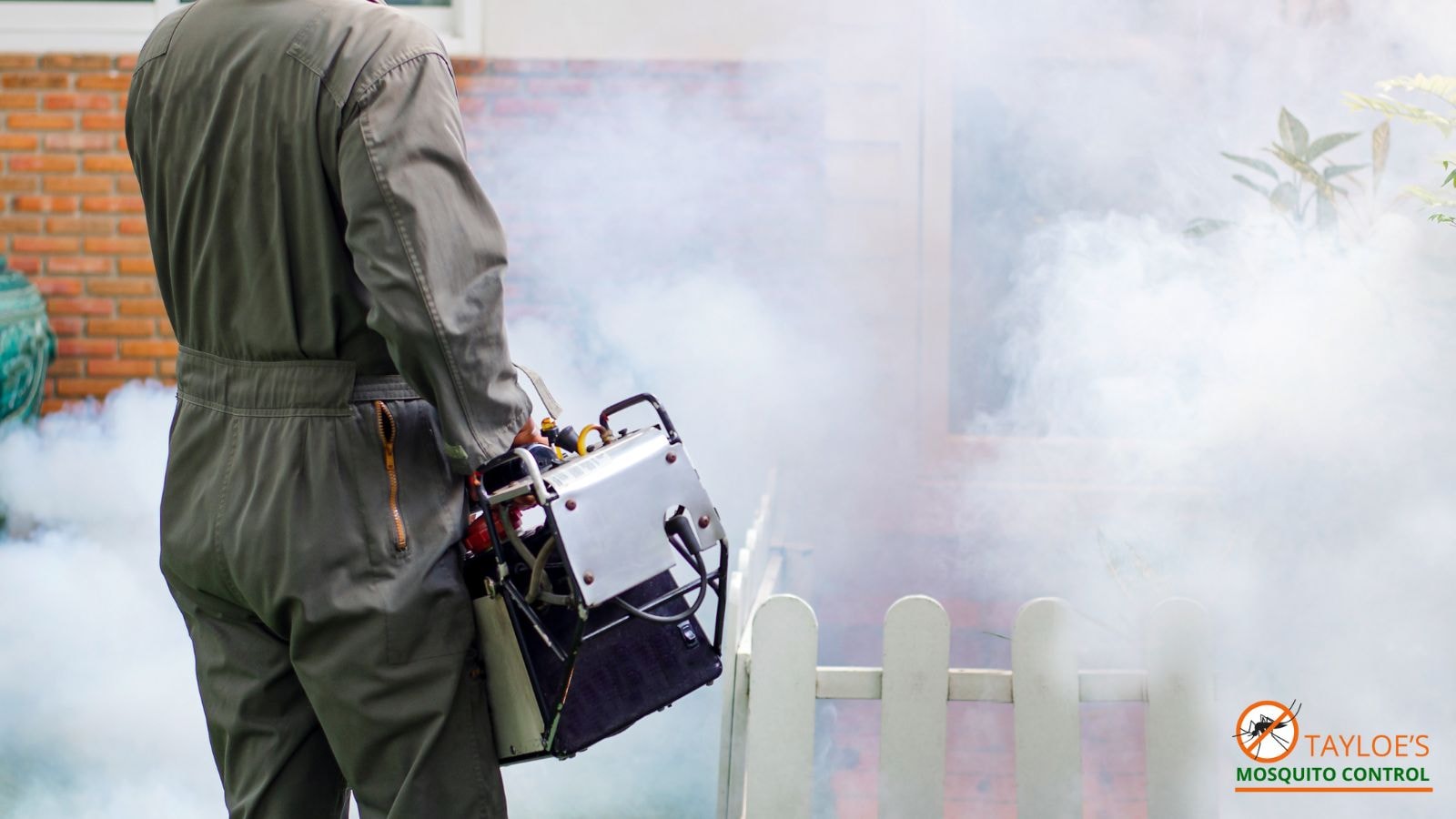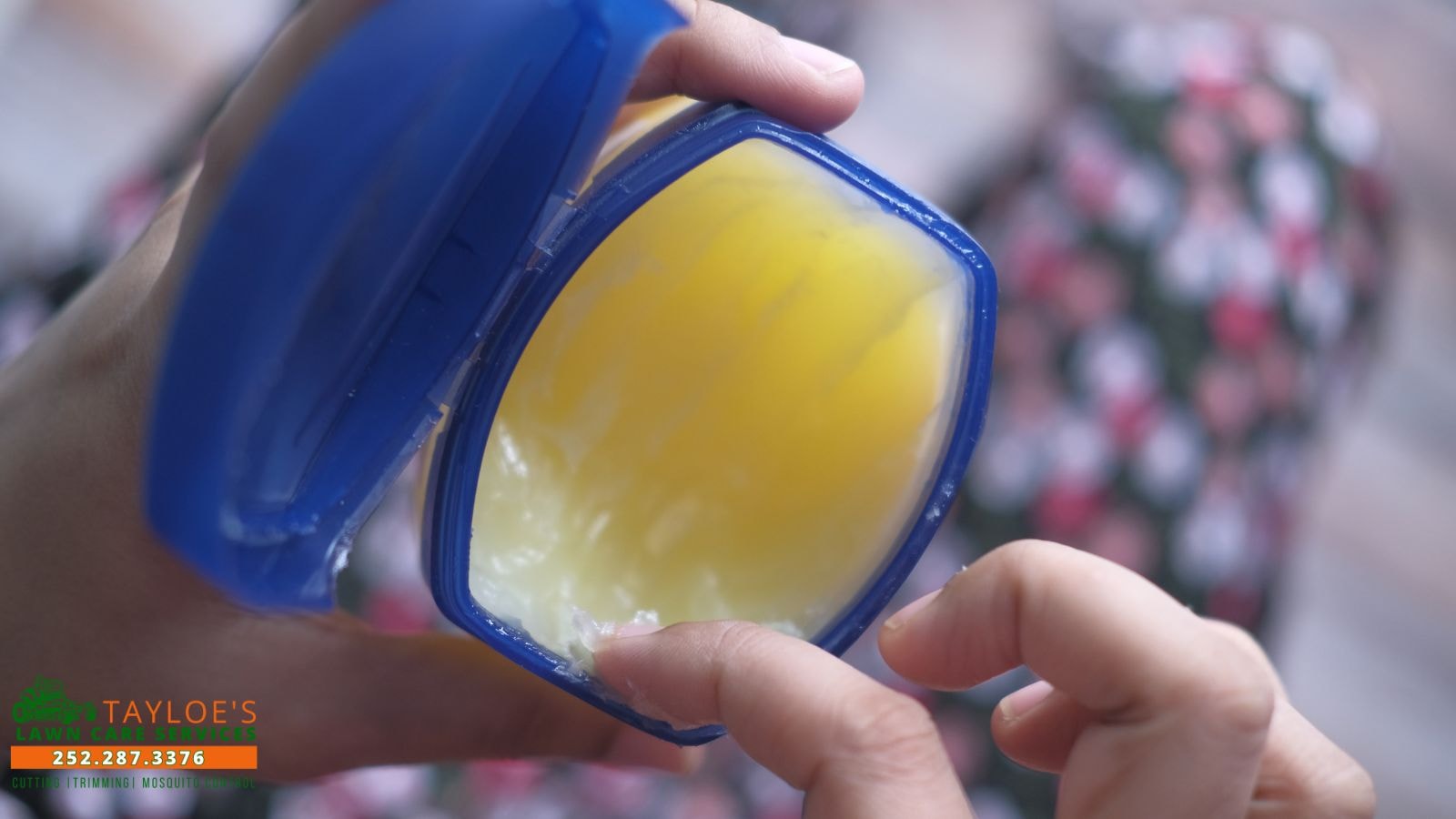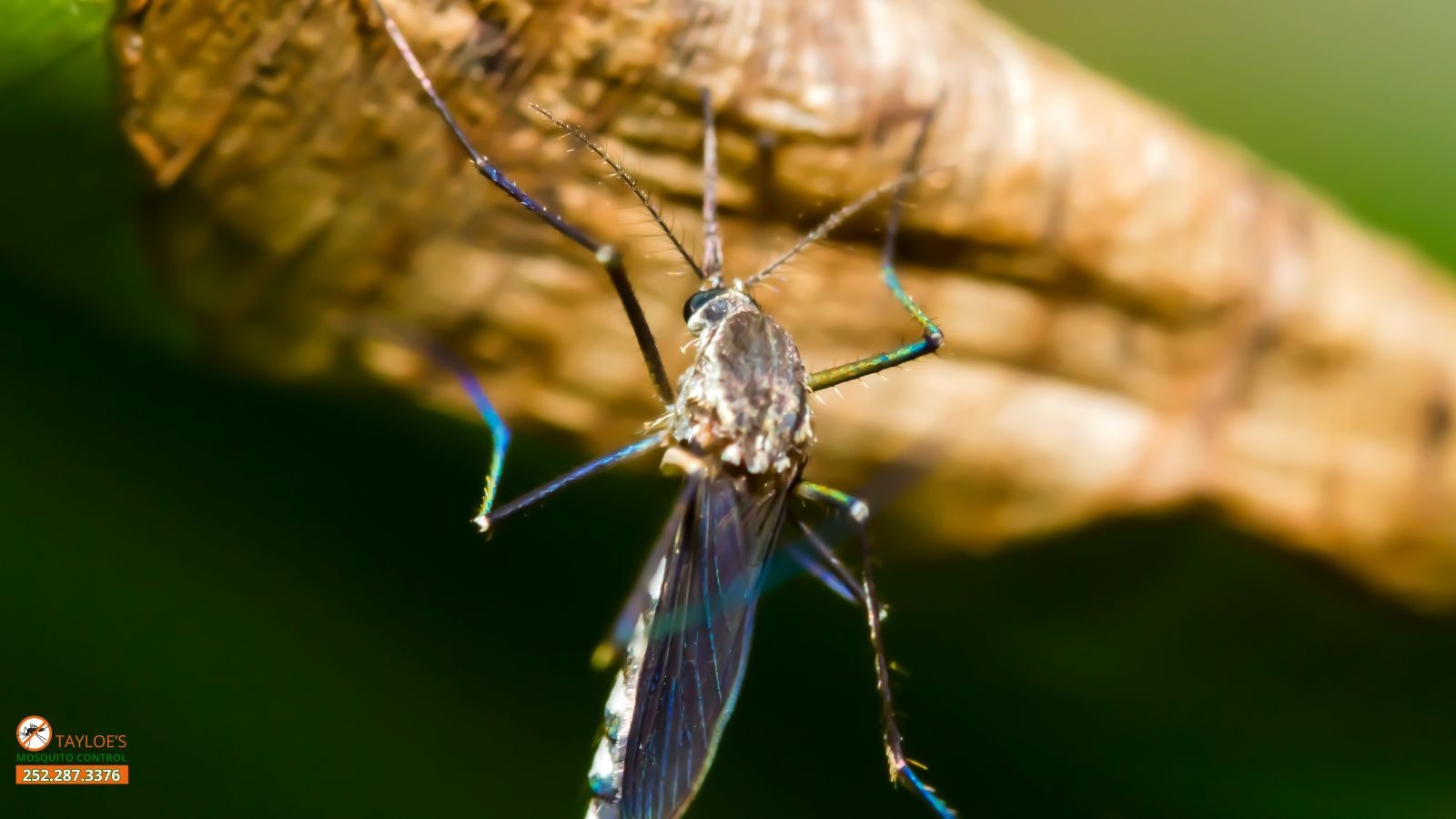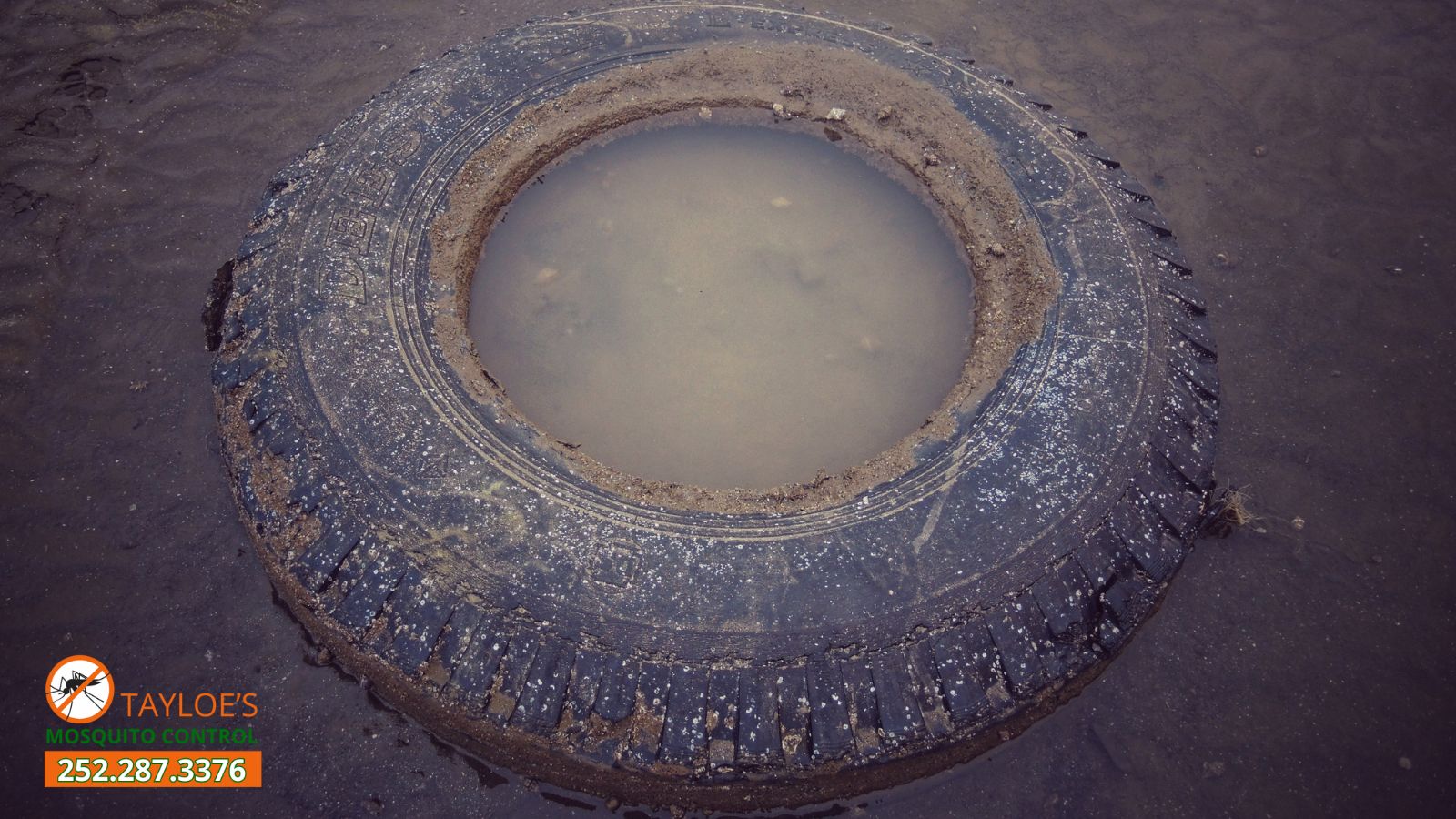Here are a few of the best mosquito-repellent plants to try.
Could growing certain plants keep mosquitoes away? It turns out that the pungent smell of some insect repelling plants can repel mosquitoes – at least in the immediate vicinity. If you want to avoid applying chemical bug sprays to your skin, then growing the plants listed as deterrence.
Clients of Tayloe’s Mosquito Control often ask our advice on eliminating pesky bugs, especially around decks, porches, or patios. We eliminate mosquitoes effectively all summer long for those who want to eliminate 90% of the annoying bugs. But some just want to rely on natural products like plants to keep the bugs away.
Keep reading for strong fragrance plants that grow well in North Carolina USDA zones 7 and 8 and can serve as a natural insect repellent.
Pungent-Smell Plants That Repel Mosquitoes
Those who want a natural pest control method should plant these species in a favorite outdoor seating area or near your fire pit. Most grow well on the ground or in beautiful pots or containers. Fortunately, fragrances we consider a lovely fragrance are those that are often offensive to mosquitoes. The more pungent the aroma is to insects, the better you’ll keep mosquitoes away.
Lemon Grass (Cymbopogon citratus)
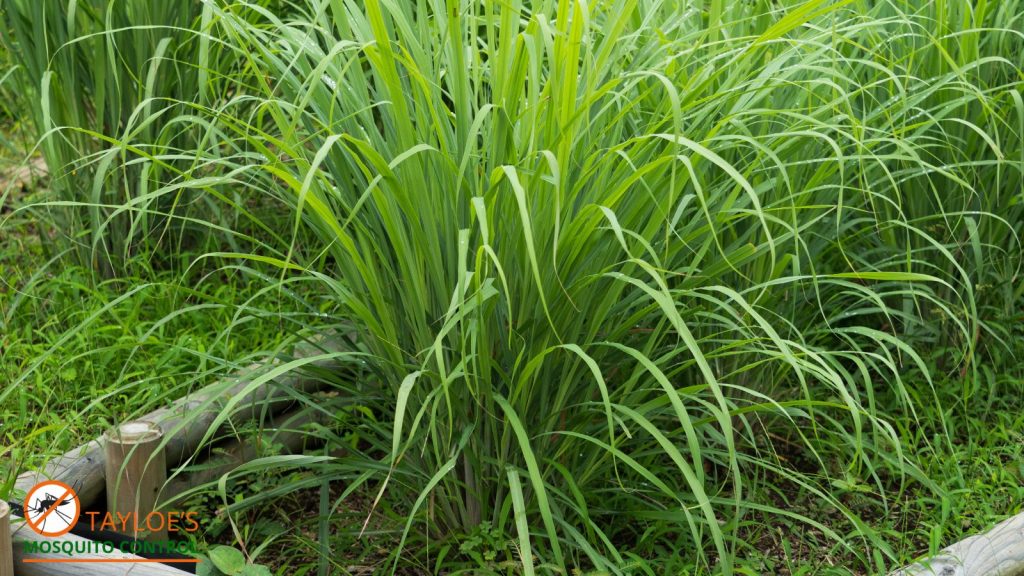
Lemon grass is rich in limonene and citral, both of which have mosquito-repelling properties. These compounds disrupt the mosquitoes’ ability to detect their hosts. This plant’s citrusy scent acts as a natural repellent, making it a popular ingredient in natural insect repellents and an excellent addition to gardens aiming to reduce mosquito activity. It thrives in warmer climates with mild winters.
Scented Geraniums (Pelargonium spp.)
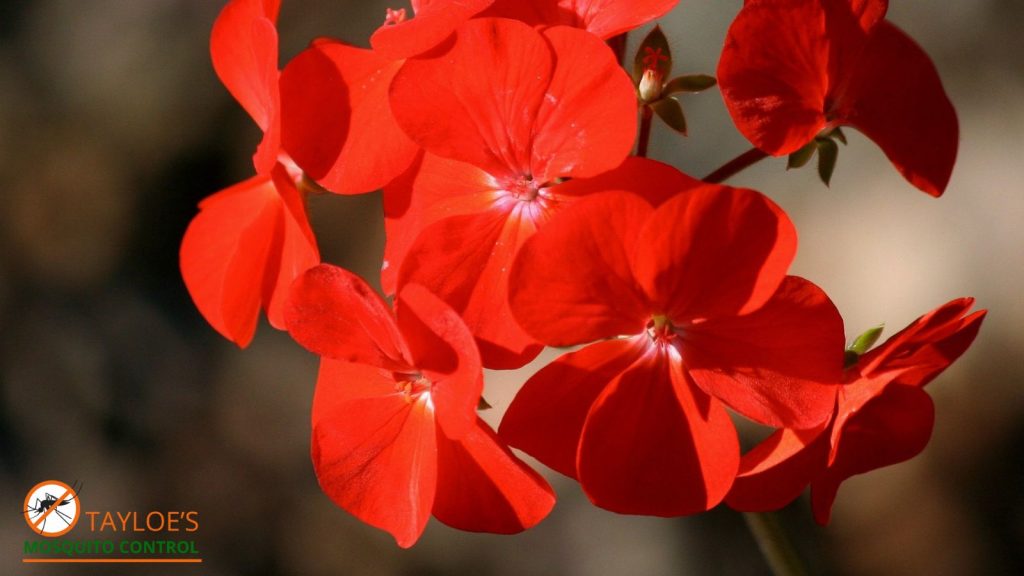
Scented geraniums contain geraniol and citronellol, These compounds are famously known for their mosquito-repelling effects. These compounds mask the scents that attract mosquitoes to humans. When planted around outdoor areas, scented geraniums can help create a fragrant and visually appealing barrier against mosquitoes. These plants are also effective protection against carrot flies.
Sweet Basil (Ocimum basilicum)
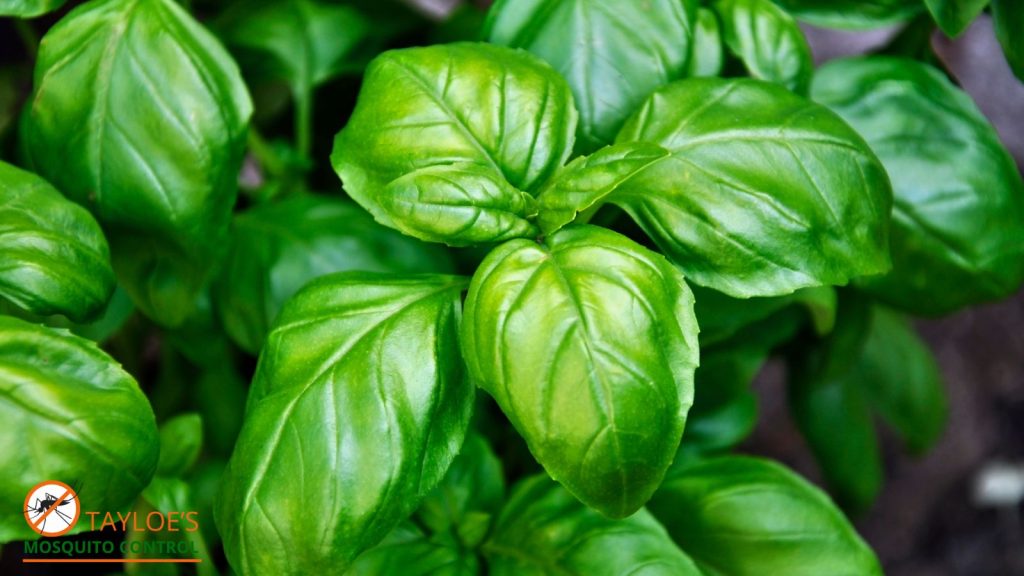
Sweet basil produces certain oils, including eugenol and thymol, which are effective in repelling mosquitoes. These oils in basil leaves interfere with mosquitoes’ sensory receptors to locate carbon dioxide in their hosts, making sweet basil a versatile plant for culinary and pest control.
Citronella Grass (Cymbopogon nardus)
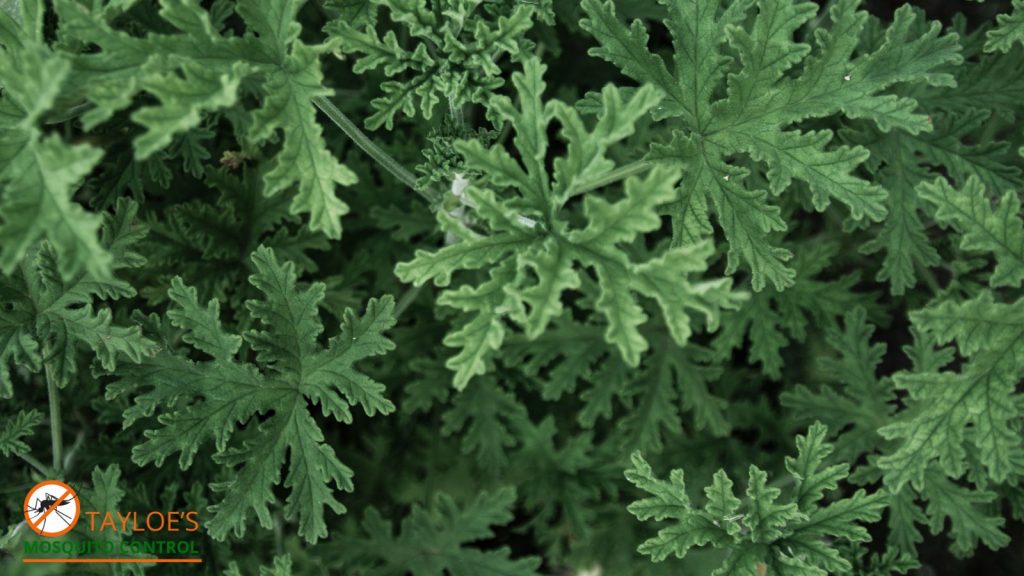
Citronella grass is familiar to most consumers who have purchased mosquito control products for lawns or gardens. Why’s it effective? Citronella is renowned for its high content of citronellal, which significantly disrupts mosquitoes’ sensory abilities. Breaking open the grass releases citronella oil, which is commonly used in candles and sprays to repel mosquitoes. This makes citronella grass a powerful natural deterrent.
Lemon Balm and Bee Balm (Melissa officinalis and Monarda spp.)
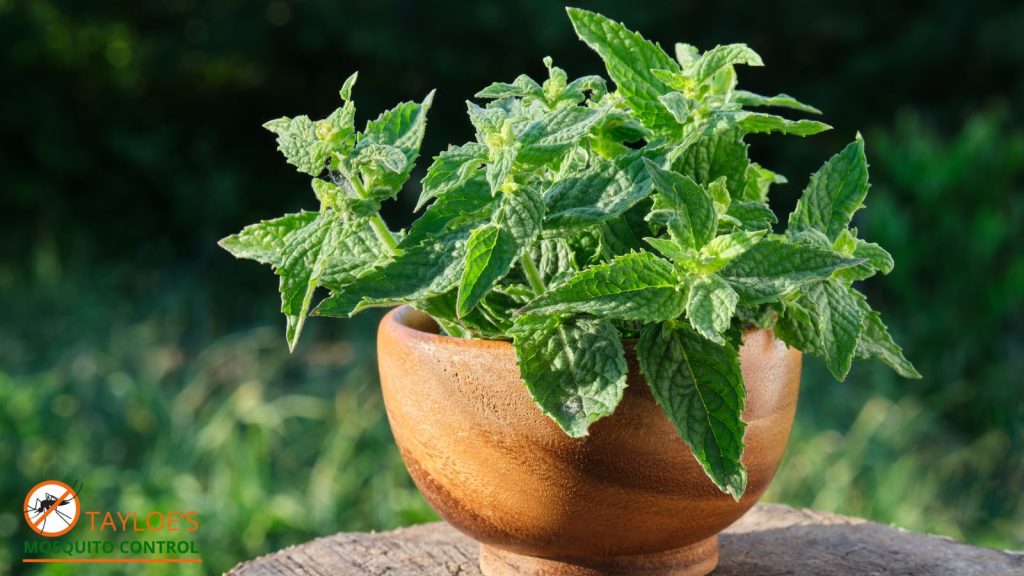
Both lemon balm and bee balm are mint family plants that produce essential oils with high concentrations of citronellal and geraniol, respectively. These compounds help repel mosquitoes by masking human scents that attract them. Planting these lemony-scent lemon balm or bee balm outdoors provides a natural fragrant barrier against mosquitoes.
Lemon Verbena (Aloysia citrodora)
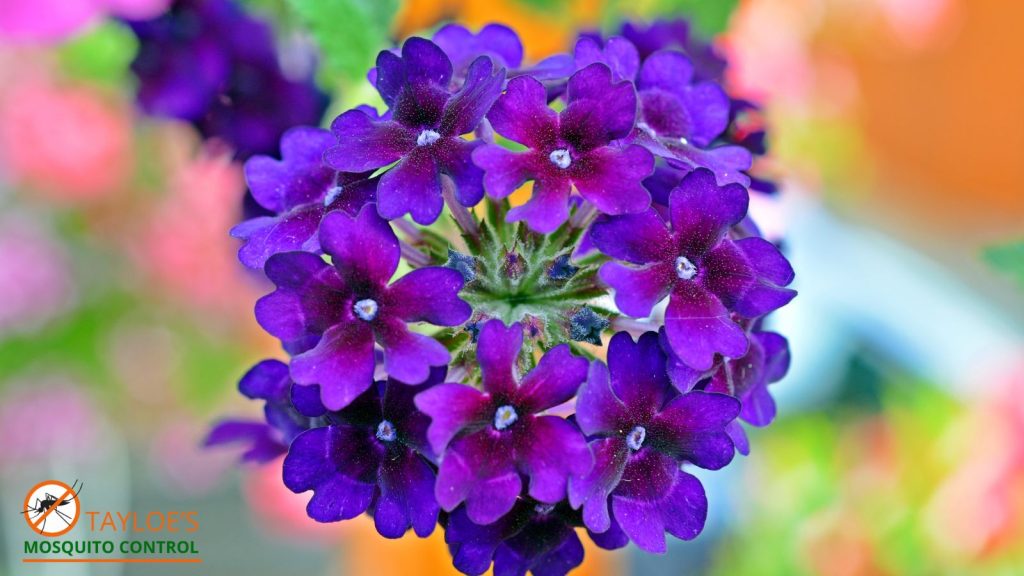
Lemon verbena contains citral and limonene, which are effective in deterring mosquitoes. The strong, lemon scent of this plant disrupts mosquitoes’ sensory receptors, making it harder for them to locate their hosts. Lemon verbena is a useful mosquito repellent and a pleasant addition to gardens. Grow the plants where they will get full sun in the morning with light shade in the afternoon.
Lavender (Lavandula)
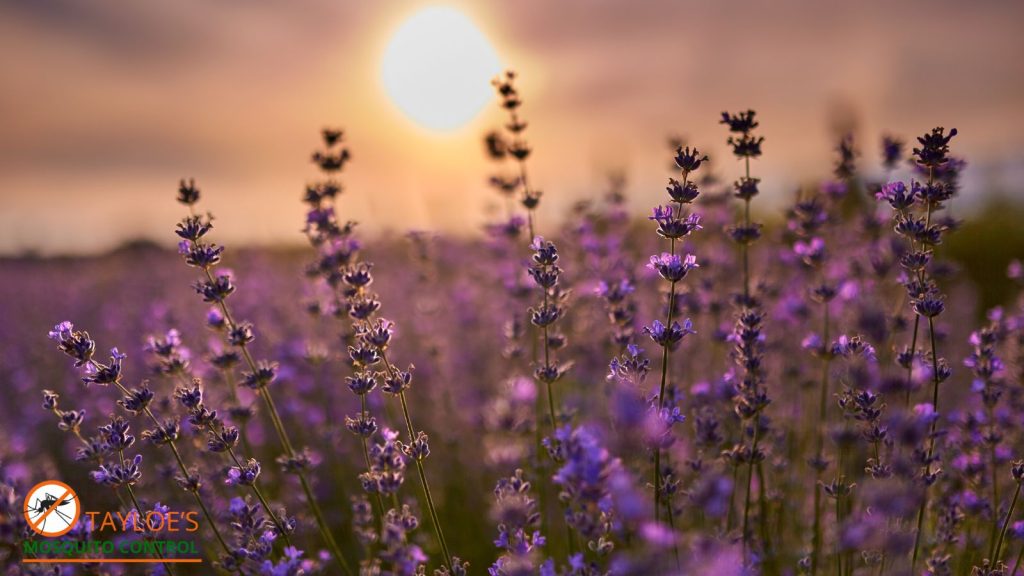
Lavender’s high concentration of linalool and eucalyptol gives it strong mosquito-repelling properties. Lavender oil hinders mosquitoes’ ability to detect human scents. Using lavender in gardens or as essential oil can help create a relaxing and mosquito-free environment. The lavender plant is drought tolerant and loves dry climates and full sun – be sure to find a spot with good drainage. Even ants appear to find lavender’s fragrance off-putting – it’s at least worth a try!
Marigolds (Tagetes spp.)

Marigolds secrete a compound called alpha-terthienyl, which deters mosquitoes and other insects. The bright, vibrant flowers add beauty to gardens while serving as a natural insect repellent. Marigolds help keep mosquito populations in check by disrupting their sensory functions. In general, you’ll have fewer bugs, including cabbage moths, in vegetable gardens. These colorful plants are full sun lovers that need sufficient drainage to thrive.
Rosemary (Rosmarinus officinalis)
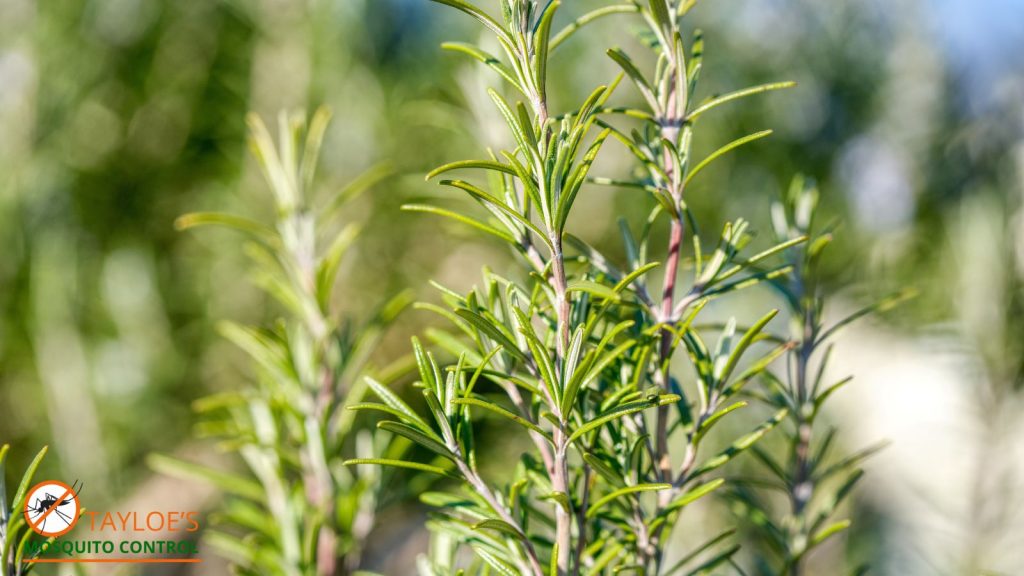
Rosemary contains several plant oils, including cineole and camphor, each an effective mosquito repellant. These compounds emit a strong woody scent that interferes with the insects’ ability to locate their hosts. Planting rosemary in gardens or using its oils can help reduce mosquito presence. The rosemary plant is drought resistant and won’t tolerate standing water. Bonus: Even rabbits and other animals appear put off by the fragrant oils of the attractive shrub and will search for other food.
Floss Flower (Ageratum houstonianum)
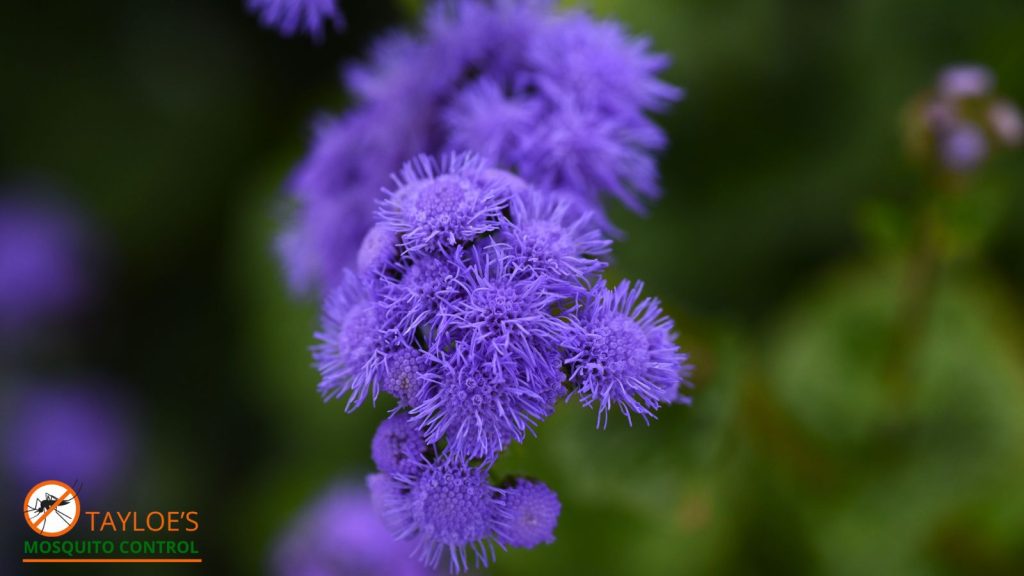
Floss flower contains coumarin, a compound that keeps insect pests at bay. Coumarin masks the scents that attract mosquitoes and reduces their ability to detect humans. Incorporating floss flowers into gardens can provide colorful and effective natural mosquito control as well as providing a stunning purple color.
Each one of these ten plants combines aromatic beauty with practical mosquito-repellant benefits. Many can go into post in the late spring or early summer and be moved indoors for overwintering.
Less Bugs = Quality Outdoor Time
Growing these insect-repelling plants can help you enjoy your garden or outdoor living spaces more in the spring and summer. They are often helpful in keeping bugs out of your area or at least deter them.
The monthly service is only $65 a month for up to one acre; we provide a free, no-pressure consultation for larger properties. If you want to learn how our one time monthly mosquito control services can help eliminate approximately 90% of your local population, please call or text us at 252.287.3376.
